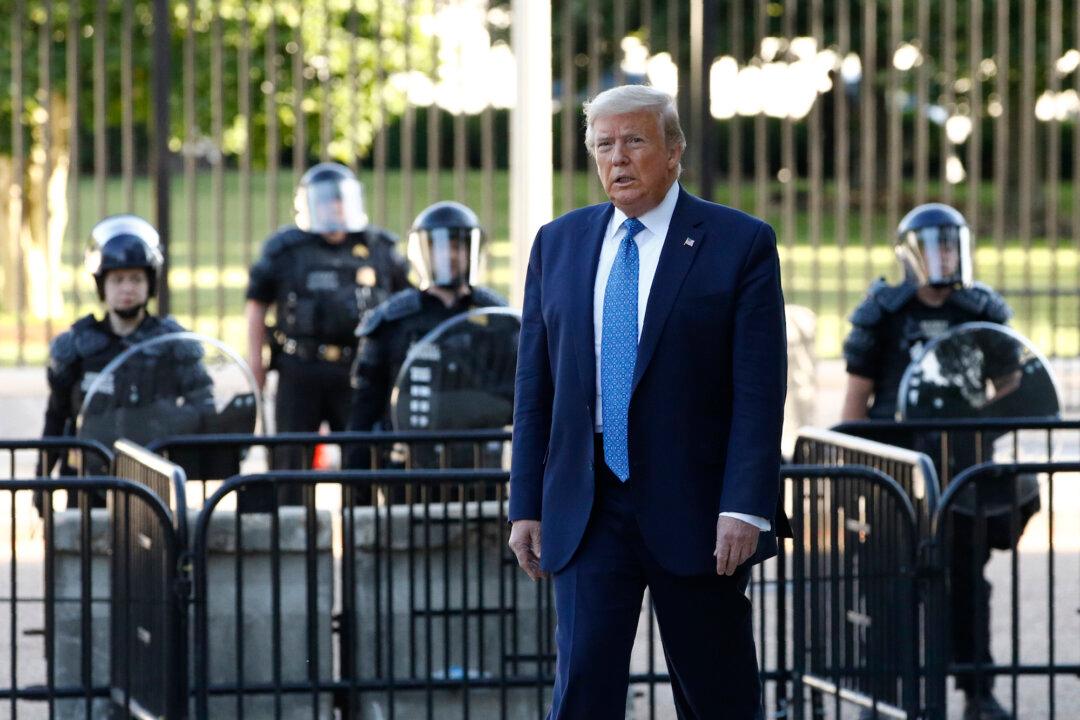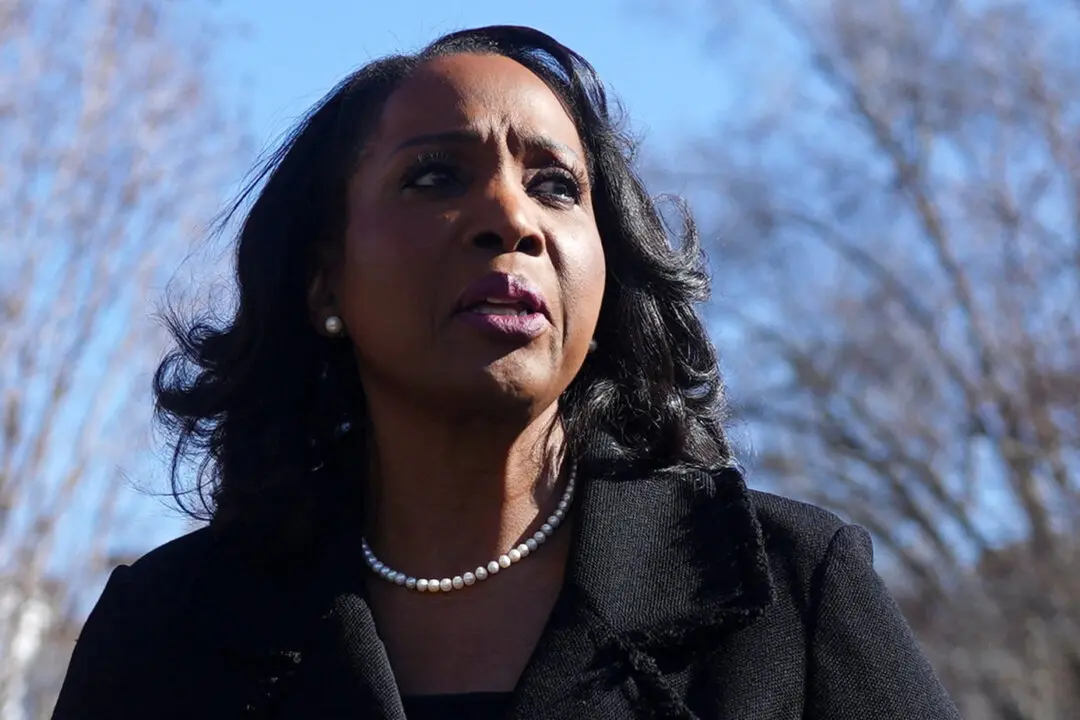The Justice Department has intervened for former President Donald Trump, asking a federal court in Washington to dismiss a civil complaint brought over a clash between protestors and police that took place in the city following George Floyd’s death.
Black Lives Matter D.C. and others brought the original lawsuit in June 2020, just days after police used crowd control tactics in Lafayette Square before Trump was set to appear at a nearby church.





